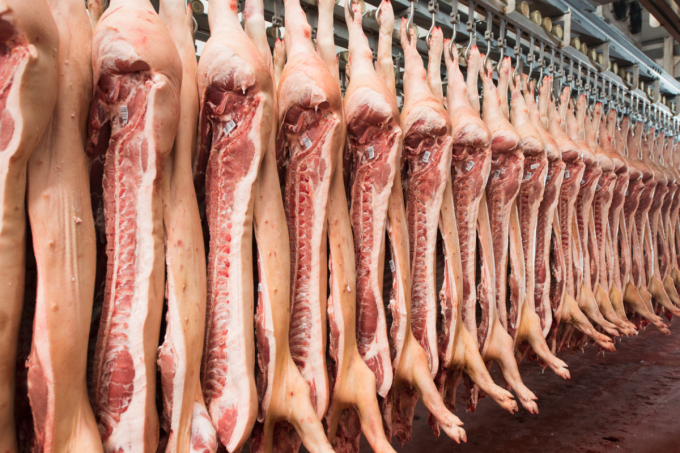December 3, 2025 | 10:17 GMT +7
December 3, 2025 | 10:17 GMT +7
Hotline: 0913.378.918
December 3, 2025 | 10:17 GMT +7
Hotline: 0913.378.918

Vietnam's pork production will increase due to improved control of African Swine Fever.
The U.S. Department of Agriculture (USDA) anticipates that Vietnam's pork production will increase by 3%, reaching 3.8 million tons, as a result of livestock expansion and the expansion of African Swine Fever (ASF) control.
The number of swine slaughtered and the number of piglets per litter are expected to increase, resulting in a 2% increase in U.S. pork production in 2025, which is expected to reach 12.9 million tons. Furthermore, it is expected that the industry will continue to support increased hog weights in 2024 due to reduced feed costs and enhanced profitability. The United States is expected to increase its pork exports by 3.4% in 2025, reaching 3.4 million tons, as a result of a robust export price competitiveness and an abundance of domestic pork.
Estimates indicate that Brazil's pork production will rise by 1.2%, reaching 4.6 million tons, due to robust export demand and reduced input costs.
The USDA estimates a decrease in swine production in the EU and China. The anticipated decrease in EU pork production in 2025 is a 1.6% drop to 20.9 million tons, primarily as a result of the decline in pork prices.
Although the profitability of China's pork industry increase in 2024, it is anticipated that Chinese pork production will decrease by 2.2% in 2025, reaching 55.5 million tons. The number of swine slaughtered in 2025 will diminish due to a decrease in the sow population in 2024. Furthermore, the consumption of pork in China is expected to remain subdued due to economic uncertainty and a growing trend toward poultry consumption.
Since the expected production declines in China and the EU exceed the growth in the U.S., Vietnam, and Brazil, global pork production in 2025 is anticipated to decrease by 0.8% to 115.1 million tons.
Translated by Linh Linh
/2025/12/01/2936-2-222331_70.jpg)
(VAN) Mortgaging his house and giving up a pharmaceutical management career, Mr. Nguyen Quang Duy succeeded in bringing Khanh Hoa's sea grapes to demanding markets such as Japan and the U.S.

(VAN) The large-scale agroforestry investment project aims to develop a leading sustainable agro-industrial center in Angola.
/2025/11/28/3433-1-212821_213.jpg)
(VAN) Many localities across the coconut land of Vinh Long are replicating emission-reducing models in production and daily life, contributing to the targets for emission reduction and green economic development.

(VAN) The green transition is an inevitable path for collective economy to achieve balanced growth and align with global trends.

(VAN) The TH Group is not only Vietnam’s leading clean-milk producer; it is also leaving a strong mark on sustainable development as it pursues the goal of carbon neutrality.
/2025/11/27/3830-1-152901_403.jpg)
(VAN) Dong Nai is developing its key crop areas, expanding planting area codes, and applying high technology to increase the value of agricultural products, aiming at a green and sustainable agriculture.

(VAN) Tay Ninh’s livestock sector is undergoing a major transformation, applying high-tech, closed-loop circular models to build sustainable value chains.